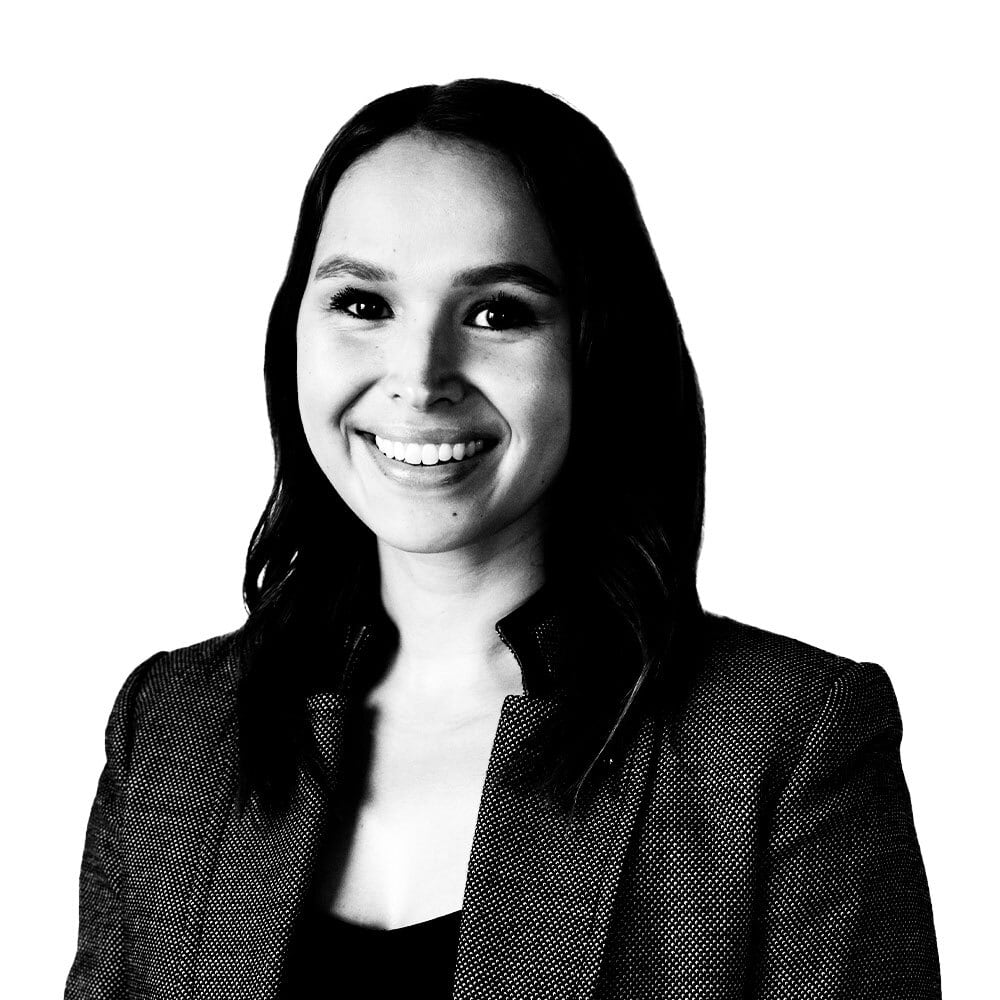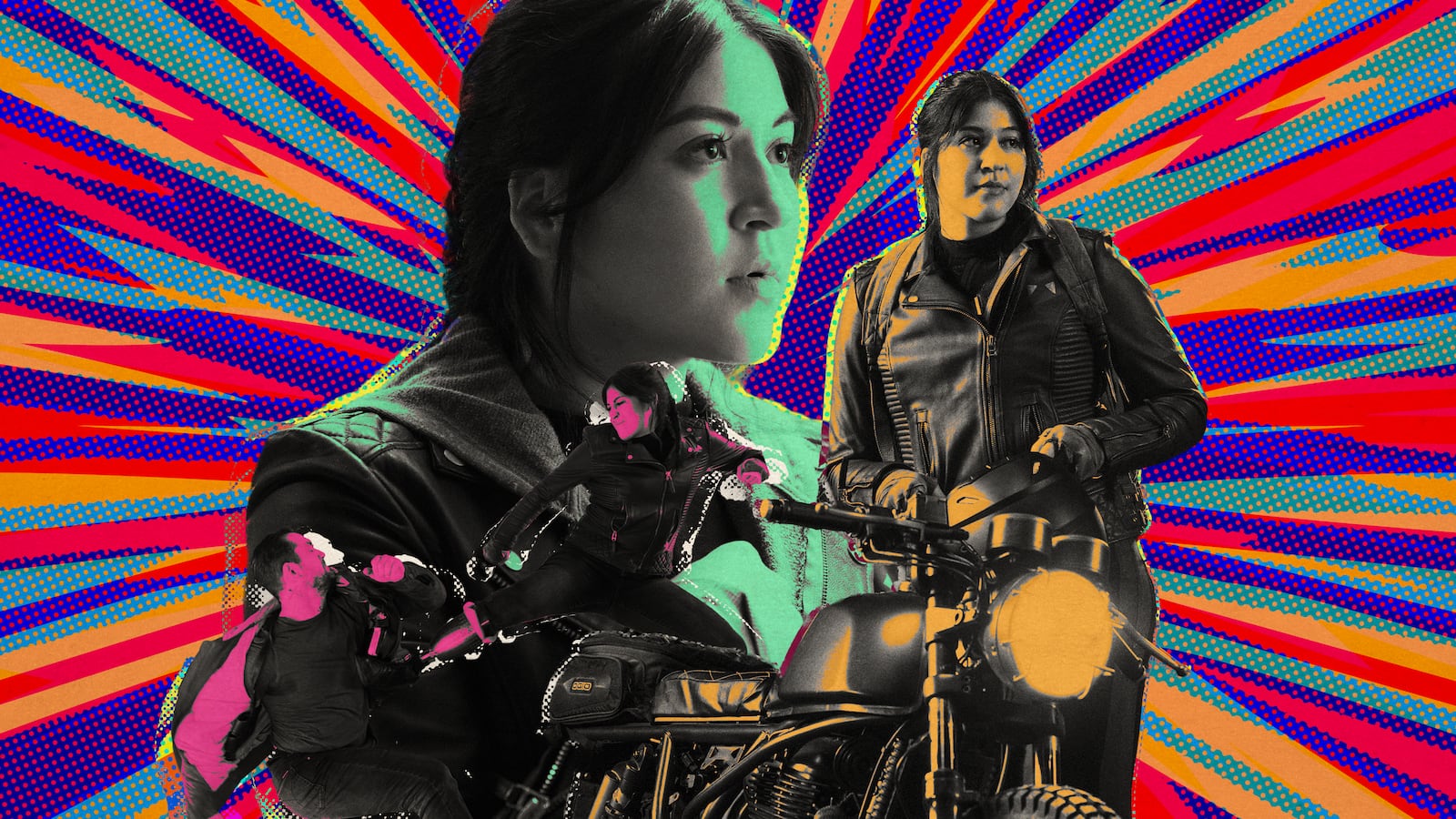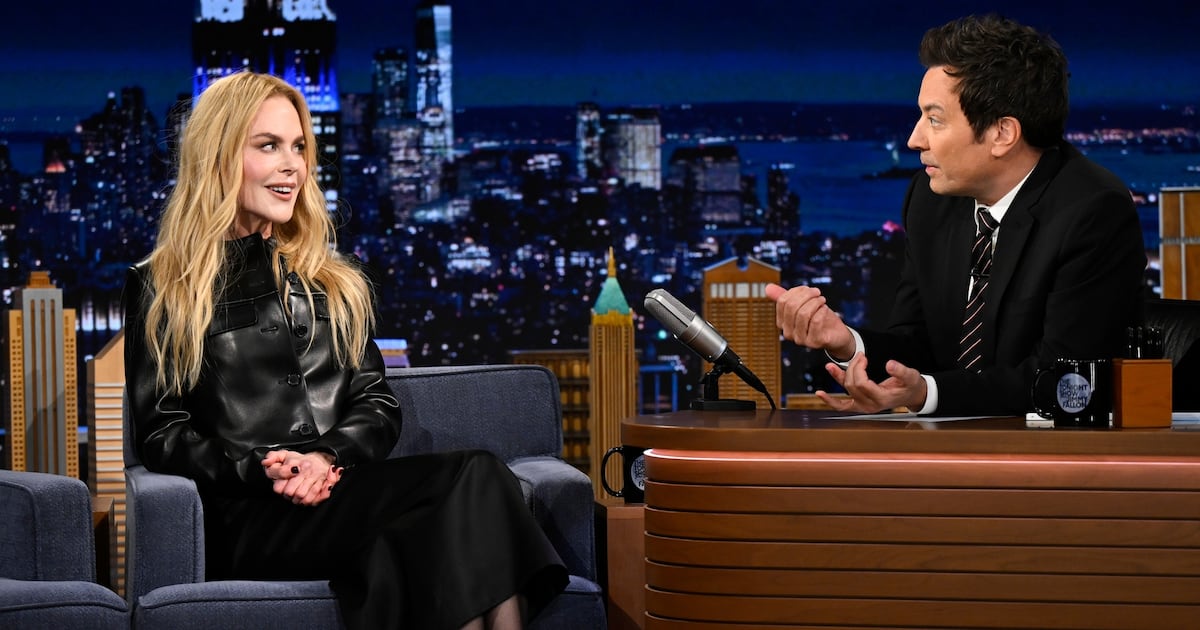As an Indigenous woman, I acknowledge that I’m not the Marvel Cinematic Universe’s target audience, which is overwhelmingly white and male. The superhero genre has largely reflected that core viewer with little divergence from what studio execs long ago determined to be a winning strategy. I bought into the idea in my youth, relishing Christopher Reeve as Superman during family movie nights. Those early impressions of his OG Man of Steel performances—arguably still the best, four decades on—made it hard for me to accept superhero portrayals by the likes of Tobey Maguire and Seth Rogen during the aughts and 2010s. As a result, I all but gave up on the genre years ago.
So you can imagine my pleasant surprise when I learned that Marvel was centering an entire TV series around a deaf female Native American character. Starring Alaqua Cox alongside a cast of notable Indigenous talents, Echo made history with its Jan. 9 debut on Hulu and Disney+. The 26-year-old deaf amputee Menominee/Mohican actress became a fan favorite when her Choctaw/Latin American character, Maya Lopez, was introduced in the 2021 limited series Hawkeye, led by Jeremy Renner. Yet I had my reservations: Would this be an authentic Indigenous portrayal or just another thinly veiled attempt to check the diversity box?
My cautious optimism shifted to pure delight upon witnessing the premiere’s origin story showing Maya’s ancestors being transported from an otherworldly cave to the Earth. That scene made me realize the striking similarities between Indigenous and superhero mythologies, often involving supernatural scenarios that impart extraordinary qualities. My contentment continued as I saw Native stars like Graham Greene, Tantoo Cardinal, and Zahn McClarnon lay the groundwork for Maya’s backstory as it unfolds in Oklahoma, also known as Indian Country (where many tribal nations were forcibly relocated in the 18th and 19th centuries). And just like that, I was hooked.
For director and executive producer Sydney Freeland, Echo is a childhood dream come true. “My inner child is still freaking out,” says the Navajo filmmaker, whose credits include Reservation Dogs, Rutherford Falls, and the forthcoming Netflix movie Rez Ball. “I grew up going to powwows and also reading comic books, but those two things never intersected with each other. So it’s very moving to be able to bring those two sides of my experience together and share that with the world.”
It’s a sad truth that Indigenous communities have rarely seen ourselves accurately reflected in entertainment. So it goes without saying that I’m elated to watch a Native woman kick ass. But I’m equally thrilled to see Indigenous characters just exist in a modern world and do everyday (albeit superhero-adjacent) things. As we peel back the layers of Maya’s story, even more Native talents take to the screen, including Devery Jacobs, Chaske Spencer, and Cody Lightning.
Although it’s obviously important to show the historical atrocities that tribal communities have endured (à la Killers of the Flower Moon), it’s crucial to depict Indigenous peoples in a contemporary context to combat Native erasure and misconceptions. As mainstream audiences take in more Indigenous entertainment, we also need to recognize the many traumas that Native groups still deal with today as a result of colonialism, such as disproportionately high rates of poverty, suicide, addiction, and disease. While Echo doesn’t confront these issues head-on, it’s an apt reminder for viewers to look beyond the screen and examine these very real-world problems. .

Vincent D’Onofrio and Alaqua Cox.
Chuck Zlotnick/MarvelSimilarly, I couldn’t help but draw parallels between Maya’s displacement from her heritage—being forced to move from her rural Oklahoma hometown to New York City as a kid—and that of countless tribal peoples across Turtle Island. Having experienced disconnection from my Tlingit ancestry, I felt a kinship of sorts with the character as she pieces together her own origin story and has flashbacks of her forebears. In Episode 2, for instance, we see her ancestors playing stick ball while Indigenous dignitaries from the four corners of the Americas watch on. In so many ways, Maya’s return to her roots mirrors today’s Native renaissance, in which Indigenous lifeways are being revitalized, restored, and rightly celebrated.
“Native characters are so often misrepresented or portrayed as caricatures, not characters, like the gentle Native, the noble warrior, and the all-knowing elder,” Freeland tells me. “We really set out to humanize our characters and make them fallible, complex, and complicated. My hope is that audiences come away with a newfound perspective of both the Native American and the deaf experience.”
Cox is a representation triple threat, serving as a strong advocate for the Indigenous, deaf, and disability communities. Throughout the series, she and her costars communicate using American Sign Language; Cox also shows off her impressive martial arts skills with her prosthetic lower right leg (which Maya was reworked to have too). Her groundbreaking casting defies tired Hollywood tropes, such as showing Indigenous peoples as relics of the past and relegating characters with physical limitations to morally corrupt villains.

(L-R) Zahn McClarnon, Katarina Ziervogel, Graham Greene, and Tantoo Cardinal.
Chuck Zlotnick/MarvelBorn and raised on Wisconsin’s Menominee Indian Reservation, Cox attended the Wisconsin School for the Deaf and was working at an Amazon warehouse when friends convinced her to audition for Hawkeye. Her scene-stealing performance in that series as the leader of the nefarious Tracksuit Mafia paved the way for this trailblazing titular role. With Echo, I’m hopeful Cox can help open up the superhero genre to even more wide-ranging representation.
“Without Alaqua Cox, there is no Echo,” Freeland says, noting that her team learned ASL to better communicate with the actress. “You need somebody who has that charismatic, powerful onscreen presence to carry a show like this, and Alaqua does all of that and then some. I could tell there was a bit of self-doubt during the first couple weeks of filming, but then I watched her evolve into a full-fledged actor over the course of the series. She fell into that character in the most beautiful way possible.”
Indeed, Echo spells a sea change in the industry, with major studios putting their money where their mouth is—that is, actually investing in stories about marginalized groups, whether that’s the Indigenous, deaf, or disability communities (or in this case, all three). This seismic shift has both content creators like Freeland and pop culture aficionados like myself optimistic about the future of inclusive entertainment.
“From my experience coming up in the indie world, there was always creative interest in telling marginalized stories, but there was very little financial interest,” says Freeland. “What’s significant about Echo is you have somebody like Marvel putting formidable financial resources behind the story of a deaf female Indigenous character. To have the opportunity to tell this story on this scale is extremely surreal and exciting. From where I stand, this is just the tip of the spear.”
So is this superhero skeptic officially back on the bandwagon? If Echo is any indication of where the genre is going, you can count me in. But what I find most exciting about this history-making series is what it means for representation in Hollywood. Let’s hope Alaqua Cox’s Maya Lopez is just one of countless authentic portrayals of Native Americans to come—as everyday people, extraordinary superheroes, and everything in between.






